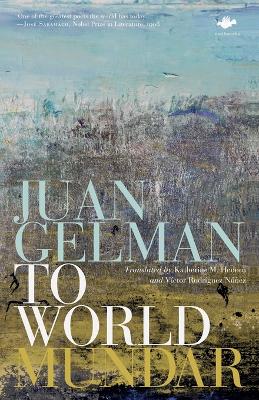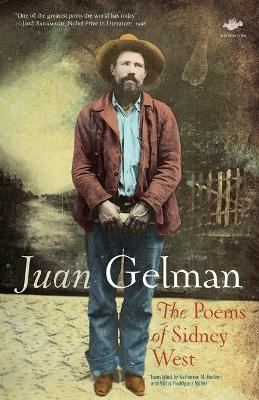Earthworks
2 total works
In To World, poems interrogate everything: nature, society, and thought itself, with no prejudice or even principle. In other words, they don’t follow any rule, tradition, or discipline; they are decidedly critical. Thought is not reduced to philosophical, ethical, religious, political, or aesthetic interpretations. Rather, we are before thought in its totality, unwilling to recognize borders – although never in a pure state, not falling into speculation, into thinking just for thinking’s sake. Thought is always related to experience, both personal and collective, and above all, emotion. It never once stops being thought through image, that is to say, lyrical. This poetry speaks of poetry; it takes it all on: the objective and subjective, the real and imagined, I and other. It ventures into virgin territory, on the outskirts of romanticism, realism, symbolism, and the avant-garde. Always a model of rebelliousness and freedom, a lesson in devotion and rigor, Gelman’s work places him among today’s best poets.
This translation offers for the first time the splendid poems of Sidney West to English readers, supposedly their original addressees. West is among the best imaginary poets of America, allegedly his native land, and of all possible lands. His texts, although rich with exceptional life experience, will satisfy those who still believe in “the death of the author.” No less satisfied, in spite of his anti-romanticism, will be those captivated by “committed writing.” And in another paradox that West himself would have loved, if he had existed, what’s offered here constitutes a translation of a translation. An English version based on the prior version into Spanish completed in 1969 by Argentine writer Juan Gelman, one of the greatest living Latin American poets. He should be considered the genuine author of the author of these poems, and the poems themselves.
Gelman’s superb text poses a radical question: must human beings in modern society die in order to recuperate their human condition? Something happens after the passing of the book’s thirty-five characters, their absence causes unforeseen consequences, generates certain kinds of presence. This profound questioning of Western assumptions surrounding death requires an innovative form that challenges the traditional boundaries between poetry and narrative, privileges the magical as a vital aspect of reality, and ultimately seeks a redefinition of the lyric persona. In The Poems of Sidney West, writing, without lessening its essential condition of creative practice, is conceived as an instrument not only to interpret but to transform the world.

